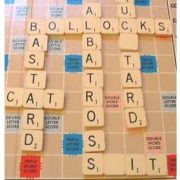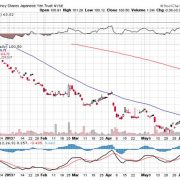Rumblings in Tokyo
I spent ten years of my life tramping in and out of Japan?s Ministry of Finance headquarters in Tokyo?s Kasumigaseki district. It was a dreadful reinforced steel and concrete affair with a dull grey tile siding that was so solidly built that it was one of the few structures in the city to survive WWII. But the building offered spacious prewar dimensions, with lovely high ceilings, and I never tired of walking its worn hardwood floors. I was there so often that some government officials thought I worked there, and they did eventually give me an office, the first ever granted to a foreign correspondent.
So to get an update on the Land of the Rising Sun I called a senior official whose father I knew well as a Deputy Minister of Finance for International Affairs during the 1970?s. I was a regular at his apartment in Shinjuku on Saturday nights, where we spent endless hours alternately playing chess and Scrabble over a bottle of Johnny Walker Red and smoking acrid Mild Sevens. We did everything we could to expand each other?s? Japanese and English vocabularies with the words not found in dictionaries. When the bottle was almost finished and his face was beet red, the Elvis impersonations would start.
My friend told me that the ongoing strength of the yen is rapidly becoming a major political issue in Japan. The spot market is threatened an all-time high only three months ago, and on a trade-weighted basis it was already at a new peak. Exporters were getting destroyed by the strong yen, which was making their goods increasingly expensive in a cost cutting competitive world.
This was forcing them to accelerate a 20-year effort by corporations to offshore production to China, which was ?hollowing out? Japan, and causing economic growth to bleed away, and unemployment to rocket. The situation was getting so bad that American companies that offshored jobs to Japan years ago, like Caterpillar (CAT), were taking them back home because labor costs are so high. His fears were confirmed by a Japanese GDP that shrank in Q4, 2012.
His masters have made repeated comments in the Diet, the Japanese Parliament, made comments in the Diet this week about his concern over yen strength. More specifically, the road is now clear is seeking approval for a much more aggressive stance to pursue Bernanke style quantitative easing to knock the stuffing out of the yen and stimulate the economy.
This time, the ministry has much more ammunition to work with. Japan has been running its first trade deficit in 30 years. This may not be an anomaly. In response to the tsunami induced melt down at the Fukushima plant, Japan is permanently shutting down a large part of its nuclear power generating capacity. At its peak, nuclear accounted for 25% of the country?s electric power supply. That is forcing a huge surge in oil imports from the Middle East that has greatly tipped Japan?s balance of trade against it. Crude?s recent surge from $84/barrel to as high as $98 has only made matters worse.
He then told me that, he too, was now learning to play Scrabble and asked me for my list of words where the letter ?Q? is not followed by a ?U?. I said that I was not inclined to disclose America?s most valuable trade secrets to a foreign competitor. However, in deference to his late father, he couldn?t go wrong starting with ?Qi?, ?Qabala?, ?Qadi?, ?Qaid?, ?Qat? and ?Qanat?. I hung up the phone and immediately sold more yen against the dollar.








